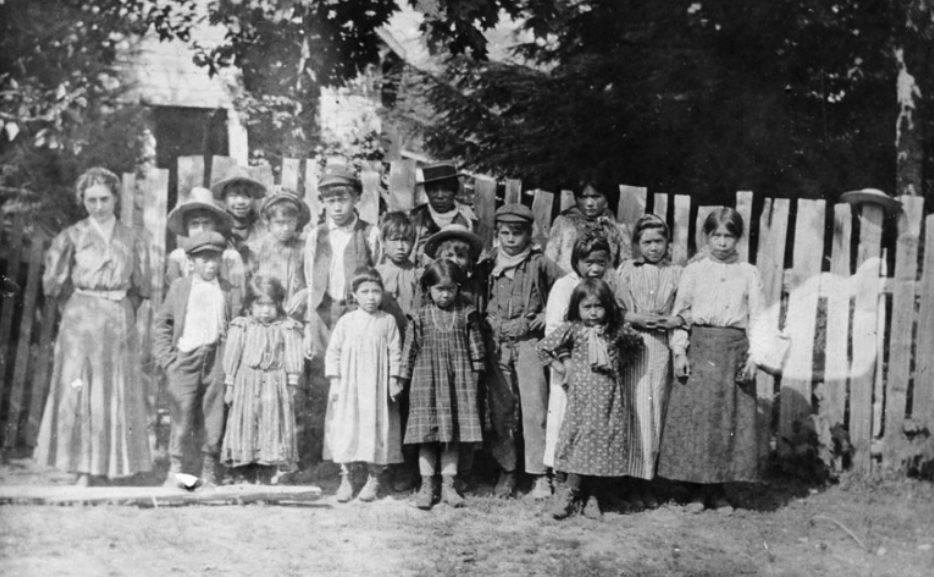
An undated photo of Boarding Home children. Photo: Klein Lawyers
Another proposed class-action lawsuit involving Indigenous children is on its way to being settled out of court, says a lawyer for one group of the class members.
Doug Lennox, of Klein Lawyers, announced Tuesday that an agreement-in-principle had been reached with Canada in the Federal Indian Boarding Homes (Percival) class-action lawsuit.
“I’m happy,” Lennox told APTN News from Toronto. “Our clients are happy about the boarding homes case.
“It’s similar to the (settlement in the Federal Indian) Day School (Class Action), but we made some improvements.”
The Indian Boarding Home Program ran from the 1950s to the 1990s. It was another educational program Canada used to assimilate Indigenous children into Western society, the proposed class-action alleged.
Assimilate Indigenous children
The claim said Canada decided it would be quicker to assimilate Indigenous children into mainstream society by removing them from Indigenous communities or Indian residential schools and sending them to public schools. The students lived with boarding families while Canada paid provinces for the cost of tuition, books and supplies.
The agreement-in-principle – reached after four years of negotiation – is a “milestone for thousands of Indigenous Peoples who suffered abuse while residing in a boarding home placement overseen by the federal government between 1951 and 1992,” said Marc Miller, minister of Crown-Indigenous Relations, in a news release.
“Canada will continue to work with the plaintiffs towards a final settlement agreement and approval of the Federal Court in 2023.”
The release said compensation would be paid:
*as an individual payment of $10,000 for those placed in a boarding home by Canada for the purpose of attending school from Sept. 1, 1951 to June 30, 1992.
*as an individual payment of $10,000 to $200,000 for incidents of physical and sexual or other abuse while residing in a boarding home placement based on the severity of the abuse.
*as a fund of $50 million to support commemoration, healing, language and culture.
*to support class members who require assistance from legal counsel and other forms of support on their abuse claims.
40,000 children
The release said approximately 40,000 Indigenous children were placed in boarding homes to attend public schools in British Columbia, Alberta, Ontario and Quebec.
“I was in a boarding home after I was in Indian residential school,” Kenneth Weitsche, representative plaintiff for the Quebec group of plaintiffs, said in the release. “This has always been a missing part of the process. It is like a cut with a bandage, but half the cut is not covered, and that half is the boarding home experience.
“I am really pleased that we reached this agreement.”
Reginald Percival, representative plaintiff for the western Canadian group of plaintiffs, said he was removed from his Nisga’a community in 1968 when he was 13 years old to attend a school in Surrey, B.C.
“The impact on me, and on other kids like me, was devastating,” he said in the release. “I have spent decades since then, working to heal, to help others, and to explain to the broader community what happened.
“It has been a long journey but I am gratified by the steps we are now taking, as a country, to acknowledge past wrongs and to move forward together.”









